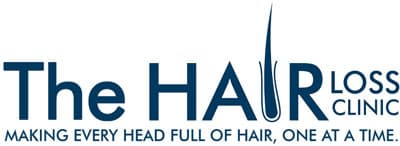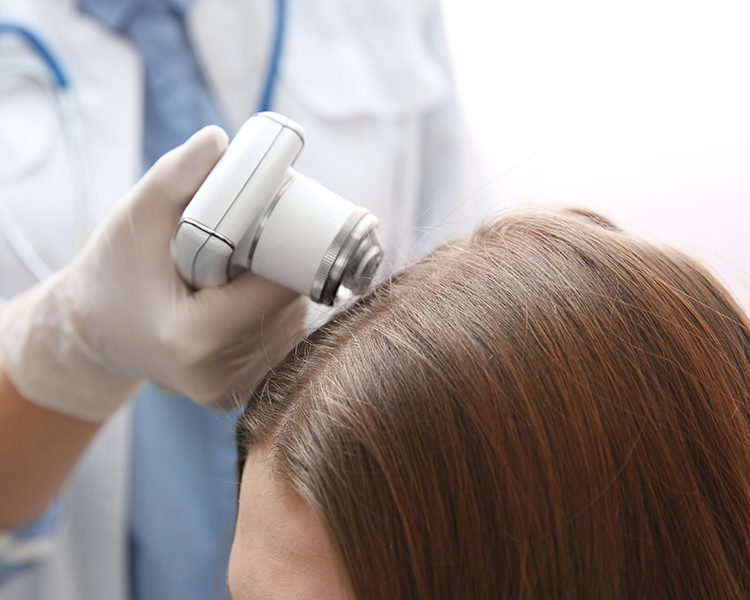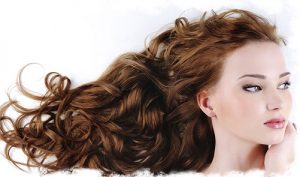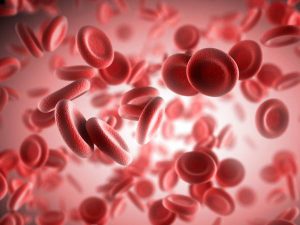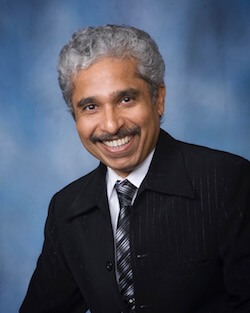Trichology?
by Tony Pearce RN.
Specialist Trichologist, National Trichology Services.
Instyle Magazine, January-February, 2000
Instyle Magazine articleWouldn’t know what a trichologist was or why you’d send a client to one? Read on…

“I can’t help you, you need to see a trichologist…” was Tom Cruise’s advice to Nicole in the movie ‘Eyes Wide Shut’ – and I’m still waiting for her call!
From the days of ancient Egypt with their precise ruler-straight styles, people have been preoccupied with growing, cutting and maintaining their hair. Even Julius Ceaser is said to have worn an oak laurel whenever in public to hide his balding patch!
Modern trichology, ‘the science of the hair and scalp’, was established in England in 1912 as the Institute of Trichologists. Although trichology in Australia is still in its relative infancy, it’s a well-known, accepted field in western Europe and the US.
I’ve sometimes been asked, ‘hair, scalp… what’s the third part of “tri” chology? Well, the textbook definition of trichology is actually “the paramedical field for dealing with problems of the hair and scalp.” This encompasses hair loss, hair breakage, infections, scaling or itchy scalp and excessively dry or oily scalp. And whilst trichology is all those things, being a trichologist is so much more – part investigator, counselor, nurse, educator, writer, stylist, sympathetic ear and shoulder to cry on are just some of the hats worn as a practising trichologist. Not unlike the unspoken roles of being a hairdresser!
The Trichologist – Hairdresser Relationship
It’s not surprising then that trichology and trichological referral is an integral part of the services offered by the hairdressing professional. If hairdressers are the artists who create beautiful hair styles then trichologists could be seen as the best ‘art supply store’ for those clients whose hair quality falls below expectation.
A client’s regular hairdresser is often the first person they’ll confide in for any hair or scalp concerns. With some hair loss sufferers, it’s usually the hairdresser who makes the client aware of the problem so most clients look to their hairdresser for the right professional advice when a hair or scalp problem has emerged.
Once a client has been seen and appropriately advised/treated by the trichologist, they should, as a professional courtesy and within the bounds of client confidentiality, advise the hairdresser about their condition, treatments recommended or intended referral to another health professional. In this way, trichologists and hairdressers work together to provide a complete service for the benefit of the client. This kind of service usually evokes a loyalty from the client that ‘cheaper haircuts’ elsewhere cannot win.
Lastly, potentially vulnerable clients are at less risk of exposure to unscrupulous commercial hair ‘clinics’ who play on the anxieties of hair loss sufferers’ where the significant motivation is large profit.
Trichologists & Client Consultation
In consultation, the knowledge and experience of the trichologist is utilised to establish the nature of the client’s problem. Hair is a very sensitive ‘barometer’ to imbalances in the body – factors such as poor nutrition, medical or genetic problems, medication and stress can adversely affect their hair and skin. By taking a careful and thorough client history, the trichologist can in most cases, identify the cause of the problem and where possible, treat it.
Hair Analysis
As part of the diagnosis, a trichologist may analyse the hair microscopically or have it analysed for its mineral levels, or suggest blood tests be run.
Microscopic analysis of hair is used to assess structural damage, establish the rate of hair loss, confirm the presence of fungus or lice, or identify genetic influences.
Mineral analysis of the hair in specialised laboratories is used to access the levels of such minerals as calcium, zinc, copper, magnesium, chromium, lead, mercury, aluminium and arsenic in the hair. These levels relate to the body levels where efficient or excess levels can indicate nutritional or medical problems that are affecting the hair and skin. For some minerals hair mineral analysis is actually more accurate than blood tests.
It’s not all balding men!
It’s actually women experiencing hair loss, largely from nutritional, medical or genetic causes, that makes up the majority of trichology clients, followed by people suffering from scalp psoriasis. Again, women appear to seek treatment for this distressing complaint more often than men. Those afflicted with the embarrassment of alopecia areata comprise the third major group.
Trichologists are also seeing increasing numbers of younger women with genetic hair loss. By contrast, psoriasis and other autoimmune conditions seem to be triggering more in older adults than previously seen. One suggested reason is that we’re continually being exposed to new, foreign molecules and andorogen-like (male hormone) substances which in a susceptible person may trigger a genetic or autoimmune response. In my opinion, in many cases it’s no co-incidence alopecia areata begins on the same side of the head the sufferer holds their mobile phone.
Medical v’s Natural?
The distinct advantage trichology enjoys compared to other health related fields is that it bridges the gap between conventional and complimentary or natural medicine. This gives the trichologist the scope and flexibility to select the most appropriate treatment without being constrained by the limitations of any one discipline.
There are natural alternatives to prescription drugs for treating conditions such as menopause, male balding, alopecia areata and psoriasis. These natural products have been shown to be as effective, safer and more economical in clinical trials than their synthetic counterparts.
However, where medical conditions are suspected in excessive hair loss, the clients should be referred to a medical practitioner for assessment.
There is undoubtedly a vast array of hair and scalp problems out there, some of which are straight forward in diagnosis and treatment, others not so. Overall however, we know they cause varying degrees of distress or embarrassment to the sufferer. Add to this the frustration of many whose complaints of hair loss is often trivialised or dismissed by some medical practitioners as unimportant. That’s where the expertise of trichologists fills a much needed void.
Trichology is an ever-changing, ever-broadening science. The hair and scalp are not isolated external features of the body but rather they reflect the wellbeing of many systems which enable humans to function normally. This diversity is perhaps the most appealing and challenging aspect of trichology.
About the Author: Tony Pearce is a Specialist Trichologist & Registered Nurse. He is a founding member of the Society for Progressive Trichology & the official lecturer for Analytical Reference Laboratory (ARL) for hair loss & hormone imbalance. In Australia he can be contacted on +61 2 9542 2700, or through his website at www.hairlossclinic.com.au. Copyright Anthony Pearce
Copyright Anthony Pearce 2005. *References for this article available on request
